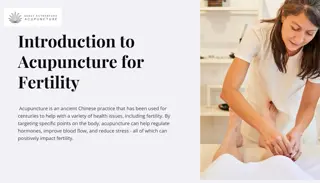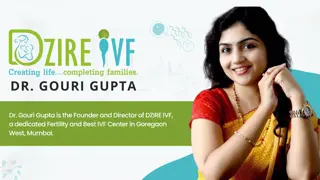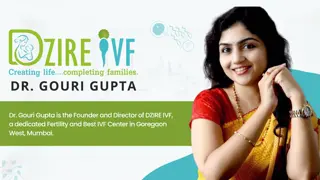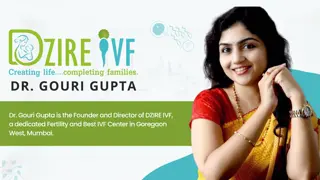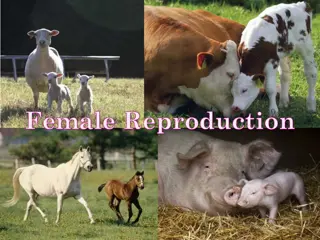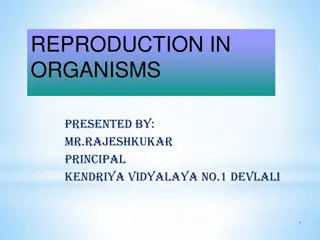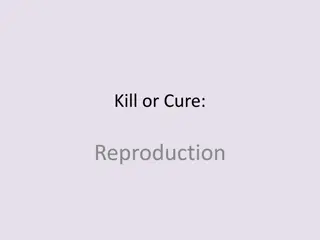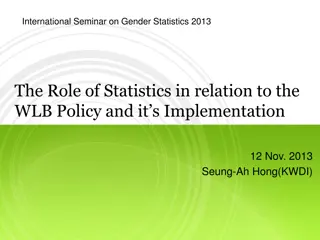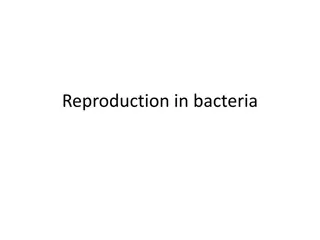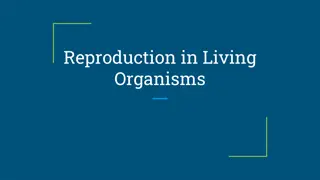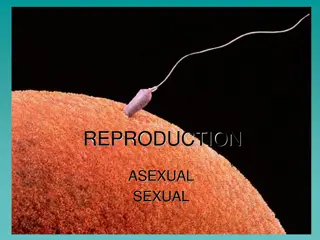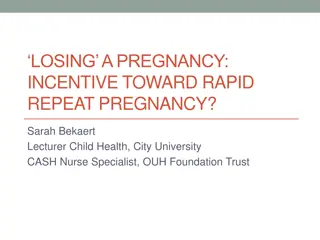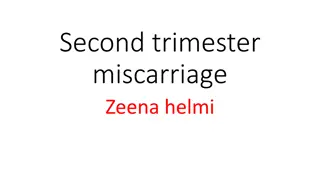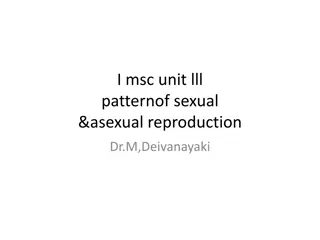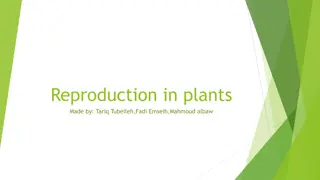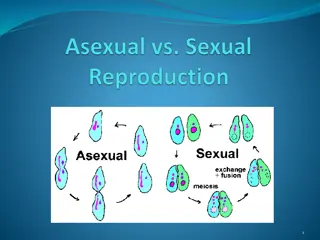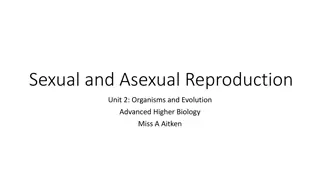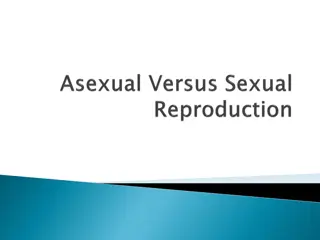Understanding Human Fertility, Reproduction, and Miscarriage
Explore the complexities of human fertility, reproduction, and the emotional impact of miscarriage. Learn about pregnancy, infertility, menopause, and the dynamics of conception. Gain insights into the causes of infertility, the process of reproduction, and the prevalence of miscarriages at different ages. Delve into topics like IVF, donor conception, and the natural changes that occur in women during the menopausal phase.
Download Presentation

Please find below an Image/Link to download the presentation.
The content on the website is provided AS IS for your information and personal use only. It may not be sold, licensed, or shared on other websites without obtaining consent from the author. Download presentation by click this link. If you encounter any issues during the download, it is possible that the publisher has removed the file from their server.
E N D
Presentation Transcript
I can reflect on the connection between good general health and aspects of human fertility and reproduction. I understand the common causes of infertility. I understand that miscarriage affects many families. Human Human Fertility and Fertility and Reproduction Reproduction I understand that the menopause is the natural time in a woman s life where she experiences changes in hormones, that this can affect physical and mental health, and that women who have been through the menopause can no longer become pregnant. I understand that menopause can be experienced early and that this can be caused by some medical treatments as well as occurring naturally.
Human fertility and reproduction Fertility is the natural capability to produce offspring. Reproduction (or procreation or breeding) is the biological process by which new individual organisms "offspring" are produced from their "parents". In this activity we talk and learn about: Pregnancy Miscarriage Fertility Infertility Menopause
Lets remember what we learned a long time ago. A woman s eggs are kept inside her body, in her ovaries. Every month (her hormonal cycle) a woman releases an egg. A man s sperm is made in his testicles which are inside the bag of skin (scrotum) that hangs behind his penis. Fertilisation can happen when the egg and the sperm meet, this can happen in different ways. rshp.scot
During sex, the mans penis can go inside the woman s vagina. When the man ejaculates, the sperm comes out and goes to meet the egg inside the woman s body. Some parents need help to start the pregnancy. Some babies start when the egg and sperm come together in a laboratory. The doctor then puts the fertilised egg back into the woman s womb. This is called IVF (In vitro fertilisation). Other babies are created when a man gives his sperm to the woman, this is called being a donor. She puts the sperm inside her vagina. If the sperm swim to meet her egg, she can become pregnant. rshp.scot
Human reproduction https://www.bbc.com/bitesize/clips/zp mqxnb (Duration 1 minute 3 seconds) How a baby develops during pregnancy (duration 4 minutes 17) https://youtu.be/h82ltr84_Yg rshp.scot
Miscarriage: A miscarriage is the loss of a baby before 24 weeks. Early miscarriages happen in the first 12 weeks of pregnancy. A woman may have a miscarriage before they even know they are pregnant. If this happens it can feel like a late period with heavy bleeding. In women of 20, around 15% pregnancies will end in miscarriage In women of 30, around 18% pregnancies will end in miscarriage In women of 40, around 38% pregnancies will end in miscarriage In women of 45, around 70% pregnancies will end in miscarriage.
Miscarriage Most of the time there is no clear reason why it happens, but it is very unlikely to be caused by anything a woman did or didn t do. Doctors think most miscarriages are caused when the building blocks controlling the development of a baby (the chromosomes) aren t right. Babies with too many or not enough chromosomes won't develop properly. This can lead to a miscarriage. The experience of miscarriage is unique to each person and for some it may be a time of sadness and feelings of loss and grief. Film: Finding out why miscarriage happens(2 minutes 56) https://youtu.be/4JPDNZ0jVpk
Fertility is the natural capability to produce offspring. Have you ever thought about your fertility? Women have a hormonal cycle which determines when they can get pregnant. The cycle is approximately twenty- eight days long, with a fertile period of five days per cycle, but this does vary between women. Men are fertile continuously, and their sperm quality is affected by their health, frequency of ejaculation, and environmental factors. Everybody has a different level of fertility. Sometimes it isn t possible to find out why a person is infertile. Film: Your Fertility Matters (3 minutes 51 secs): https://youtu.be/ETwDCKBaYd4
Causes in men Low sperm count due to conditions like diabetes or hormonal variations Sexual problems like premature ejaculation, erectile dysfunction Overexposure to certain chemicals Smoking Certain medications What is infertility? Some women get pregnant quickly, but for others it can take longer. If a woman cannot get pregnant this may be because she or a male partner may be infertile. There are a number of things can cause infertility, many can be treated successfully. Causes in women Ovulation disorders/Variations in hormones Problems with the uterus such as Endometriosis - thickening of the Uterine walls Overweight Infections that are sexually transmitted Being exposed to certain types of chemicals
Infertility Infertility affects one in seven couples Age and lifestyle factors affect both male and female fertility STIs are one of the biggest preventable causes of infertility in teens using condoms protects against STIs. 20% of women in the UK do not have a child: this includes women who wanted to but couldn t Fertility treatment can t help everyone. Your fertility matters so take care of it.
Are you thinking about your fertility in any new ways now?
Menopause The word menopause means final period. The menopause is a natural part of ageing that usually occurs between 45 and 55 years of age, as a woman s oestrogen levels decline. However, around 1 in 100 women experience the menopause before 40 years of age. This is known as premature menopause or premature ovarian insufficiency; it can happen naturally or as a side effect of some medical treatments Some women experience few symptoms of menopause, but for others it can be a really difficult time, affecting how they feel physically and mentally. Women will need help and support during this time from family, friends and the workplace.
Watch this short film together and afterwards check understanding and ask young people to consider: as menopause is such a natural part of a woman s life how can we best support women when they go through it? At home? At work? What really happens to your body during menopause? Body stuff with Dr Jen Gunter (5 minutes) https://youtu.be/cheqkrcHkrI



